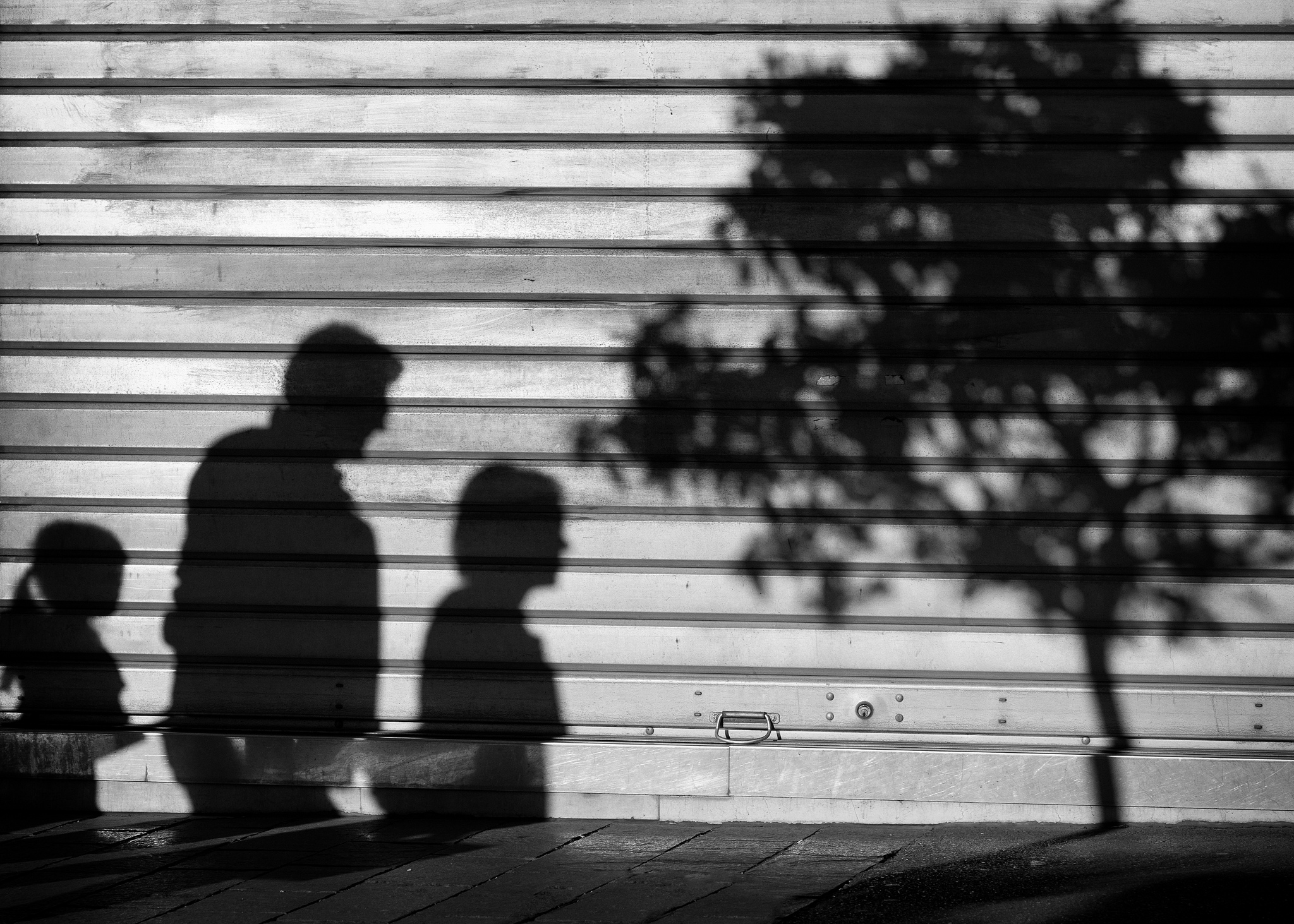Mental illness is a dirty secret in the Muslim community. It’s seen as a curse, as an embarrassment, as something to be kept hidden. In many countries it’s not spoken about, and certainly not medically treated. It’s something you get over, because you really don’t have any choice.
It goes without saying that for those with mental illness, life is a struggle. What many don’t realize is that for their spouses it is a double struggle, and perhaps for their children even more so. This is the other side of the story, the account of a relatively okay person living with a husband who is bipolar, the account of two children whose father has ups and downs that are unbelievably hard to explain or understand.
First, a caveat: Salma isn’t my real name. When I started writing this narrative, I decided that I wouldn’t identify myself because I don’t want anyone to feel sorry for me. Also, my husband would be hurt if he knew I had written this. Why? Well, he’s a man. And men generally don’t like admitting they need help, that they are incapable or uncertain or unable to cope.
But I find it hard to cope, too, and that’s something not everyone really understands. People keep telling me how lucky I am to have him. Thankfully his job isn’t affected by his depression, and somehow outsiders judge you based on how large your house is or how many cars you have, as if those things equate to happiness. And it’s true, when he’s in a good mood, he’s the most amazing husband a woman could ask for. He’s kind, he’s generous, religious without being a fanatic. But all that never lasts long, and the drop in his emotions when it comes is as sudden as it is inevitable.
I hate myself for hating him in his “down cycle,” as I call it. I tell myself I should be sympathetic, love him through the bad times, and give him comfort. But I can’t when something in his brain is making him shout, cry, hurt inside. I admit that sometimes I get furious when he says life isn’t worth living, wanting to demand how come our children and I aren’t worth living for. But I can see the agony on his face, and nothing I do can ease the pain. In the meantime, he’s like a wounded animal, roaring at everything in his way.
It isn’t always true that things improve with time. I’ve been married almost two decades now, and even with medications the down cycle is vicious, depressing. My children are in elementary school, and they can’t understand why Abbu is so mean sometimes. Why there are days he sleeps all day. A year ago I decided to leave, but then I wondered how he would cope without me. I thought about how my children would fare without a father. I told myself I have to be brave and as long as I’m not in physical danger, stick it out so that we can be a family, even though it’s not a perfect one.
It’s ironic, though, because this isn’t my first experience with mental illness. My father had paranoid schizophrenia, which is a terrible condition that makes bipolar seem like a kitten in comparison. I had a terrible childhood, and I used to wonder at my mother who survived not only the emotional anguish of living with a mentally ill person but also the physical assaults she had to bear. I always blamed her for not leaving, for allowing us to live in that home with a person who was so aggressive, so irrational. Yet here I am doing the same.
But I think my experience is different, not only because bipolar is different from schizophrenia but also because I learned much from watching my parents. I can look back and identify the errors in judgment my mother made, and sometimes hindsight being 20/20 can be helpful. I’ve made a conscious decision to do things differently, and hopefully survive this relationship.
Most importantly, I look at my husband as a human being, not in terms of his illness. During his highs, I spend a lot of time cuddling, holding hands, and generally making him feel happy and assured of my affection. I encourage my children to tell him they love him, to spend time with him, to shower him with kisses. My daughter draws cards with hearts and flowers, which he keeps around him to remind him when he’s in a low. During those dreaded lows, we keep away, although I continue communicating with the kids, telling them he’s acting this way because he’s not well. The biggest mistake my own mother made was that she never explained our father’s illness to me, and I ended up hating him. So when my husband is angry or upset, I take the kids aside and tell them: “Abbu’s not feeling well right now, but he still loves you very, very much. Let’s pray that he gets better soon.”
I’m not always cool with it, though. Sometimes the emotions swirl inside me just as fast as inside him. I question whether he loves me, which aspect of him is true, and which is false. I constantly think if life would have been different if he had been “normal.” I rail at God for giving me not just a father with mental illness but a husband, too. And I worry that the disease will find a home in one of my children.
But for now, my kids are uncomplicated, innocent. The other day my daughter, six now, asked me about marriage. She said, “I love Abbu, he’s a wonderful dad, but I hope I don’t get married to a person like him.” I understood instinctively what she was saying, but I asked her to explain anyway. “He screams at you a lot,” was her reply. Instead of upsetting me, that gave me peace of mind. If I can help my children see him as a person not as a monster, I think I’ve done a good job. They should love him, because he’s their father, not a disorder. Me, I’m coping fine.
[separator type=”thin”]
This piece is written by Salma Ahmad.
Photo: Thomas Leth-Olsen






Thank you for this read. I’m currently engaged to a Muslim man with bipolar disorder. He has been up front and honest about his condition from the get-go, and I’ve been doing research on the condition. But there is a simple honesty about loving and being in partnership with someone with bipolar that I recognize in your piece. I have been in this relationship for over a year now, and I can see that bipolar is only something that I’ll understand more with time. I’m already acquainted with how the ups and downs can impact the way we relate to each other. Part of me thinks it would be wise just to walk away from the relationship now, before papers are signed, weddings are thrown, and children come into the picture. But it’s never as simple as that. I love him very much, and also feel that everyone deserves the chance for happiness and partnership. But of course, I know that it will take its toll on me, as I read that it’s taken its toll on you. It’s such a confusing position to be in- wanting to defend my partner from any negativity from my friends and family, and yet wanting to scream out for help when he is either utterly absent or emotionally hostile. He is the best person in the world when he is well. I just don’t know what life will bring me when he is not well.
I think it’s somewhat unfair for the well partner to force parenthood onto the unwell partner in hopes that the mental illness will just ride out and subside naturally. Sister’s who have partnerships with men who are mentally unstable are unaware of the genetic legacy they are passing onto their children. How will they feel when the children hit middle school/ puberty which is a common time when underlying psych issue start creeping up or the age of 18-25 when certain mental conditions start to reveal themselves. Further research into the history of mental illness in a family tree suggests the various ways that gene’s choose to express themselves. The women who choose to procreate with these men need to ask themselves how they would feel if their child were afflicted with the illness commits a heinous crime, or harms themselves.
Were outspoken against forcing more pregnancies on a mother with post par-tum depression, Who speaks for the husbands who just can’t handle more children ? Consider this documentary on mental illness within the family.
https://www.youtube.com/watch?v=kfGYqdTAxEk
I think its brave of you to share this with the world. Its true, mental illness is considered taboo especially in the Muslim world and people who suffer have deep struggles and feel very low especially having a family with children.
I suffer from depression and I thank God for giving me a very patient and loving husband, But I also feel pain that I am not a normal healthy wife and experience low days despite seeking medical help. I am not brave to share my experiences but I understand the need to leave the ill spouse. I sometimes think this is why we who are depression sufferers consider suicide- to avoid hurting our loved ones. But we need to be brave from both sides- the ill and the healthy and may Allah bless and grant relief to all of us from these illnesses.
I have bipolar and my mother always tells me I’m a monster. Thankfully, unlike her, I don’t almost kill my children, ignore loved ones, and cut people out of my life. My lows are generally hating life and crying. I was married by force to a violent man for a year and a half, which I think exacerbated things even more and now I’m scared to get married again. The person I’m getting to know now has a physical ailment, which my family thinks is a crime. I’d rather a physical rather than invisible sickness.